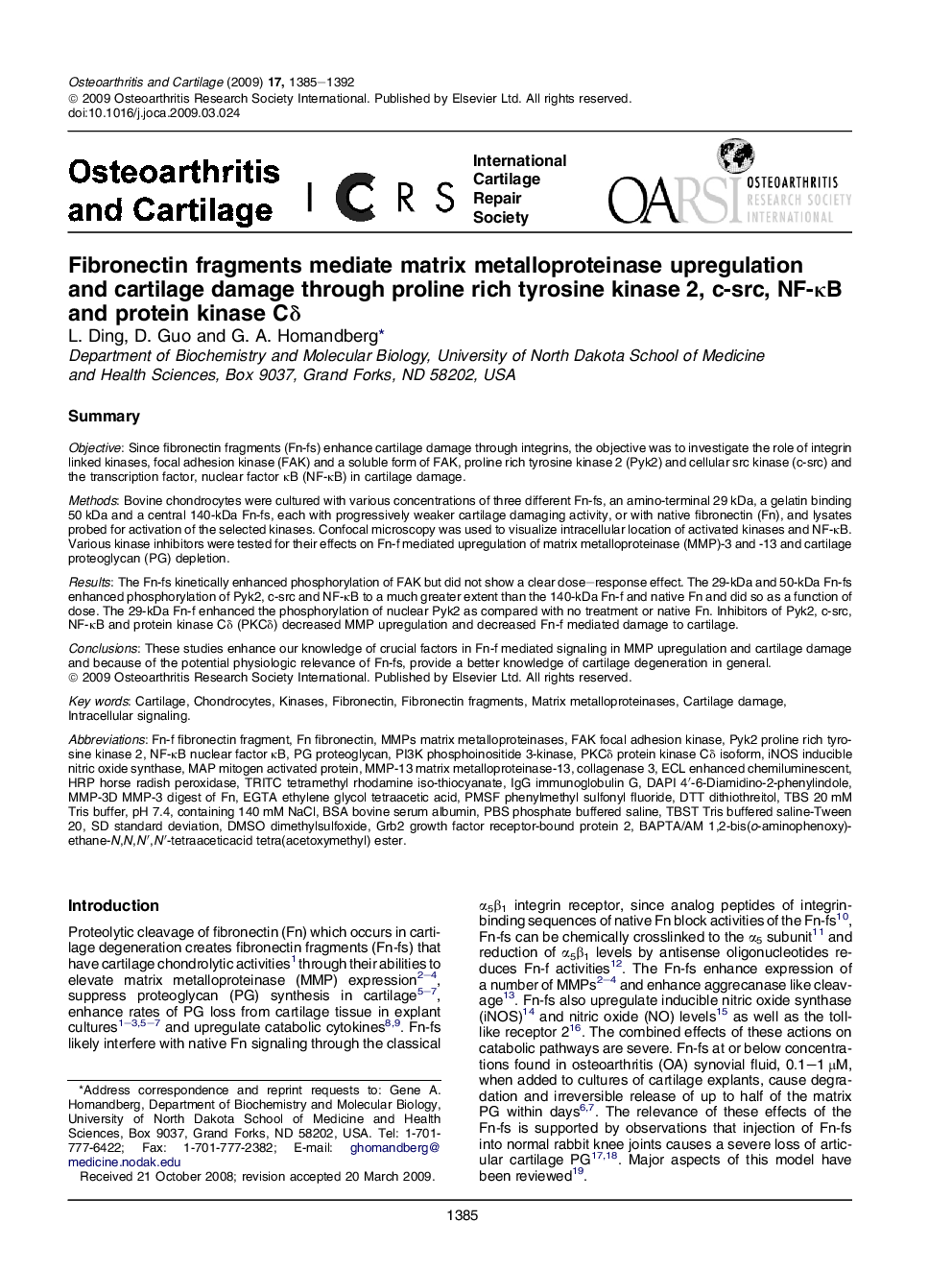| Article ID | Journal | Published Year | Pages | File Type |
|---|---|---|---|---|
| 3380650 | Osteoarthritis and Cartilage | 2009 | 8 Pages |
SummaryObjectiveSince fibronectin fragments (Fn-fs) enhance cartilage damage through integrins, the objective was to investigate the role of integrin linked kinases, focal adhesion kinase (FAK) and a soluble form of FAK, proline rich tyrosine kinase 2 (Pyk2) and cellular src kinase (c-src) and the transcription factor, nuclear factor κB (NF-κB) in cartilage damage.MethodsBovine chondrocytes were cultured with various concentrations of three different Fn-fs, an amino-terminal 29 kDa, a gelatin binding 50 kDa and a central 140-kDa Fn-fs, each with progressively weaker cartilage damaging activity, or with native fibronectin (Fn), and lysates probed for activation of the selected kinases. Confocal microscopy was used to visualize intracellular location of activated kinases and NF-κB. Various kinase inhibitors were tested for their effects on Fn-f mediated upregulation of matrix metalloproteinase (MMP)-3 and -13 and cartilage proteoglycan (PG) depletion.ResultsThe Fn-fs kinetically enhanced phosphorylation of FAK but did not show a clear dose–response effect. The 29-kDa and 50-kDa Fn-fs enhanced phosphorylation of Pyk2, c-src and NF-κB to a much greater extent than the 140-kDa Fn-f and native Fn and did so as a function of dose. The 29-kDa Fn-f enhanced the phosphorylation of nuclear Pyk2 as compared with no treatment or native Fn. Inhibitors of Pyk2, c-src, NF-κB and protein kinase Cδ (PKCδ) decreased MMP upregulation and decreased Fn-f mediated damage to cartilage.ConclusionsThese studies enhance our knowledge of crucial factors in Fn-f mediated signaling in MMP upregulation and cartilage damage and because of the potential physiologic relevance of Fn-fs, provide a better knowledge of cartilage degeneration in general.
